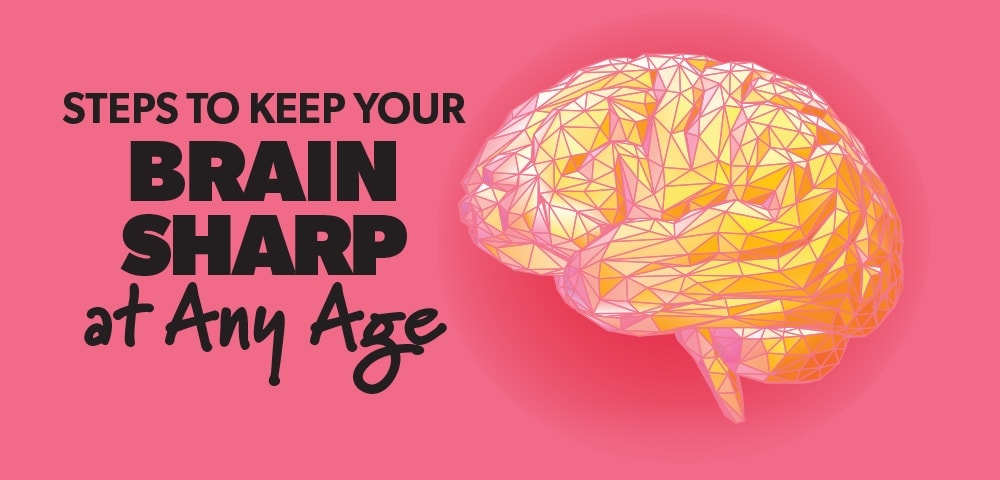
Are you feeling forgetful? Worried there’s nothing you can do about it? For a long time, the prevailing notion around brain architecture was that it was all downhill from childhood. We gradually lose brain cells over time, never to be replaced, or so we thought. We now know that the brain is remarkably flexible, or “plastic,” with the ability to reshape itself and, under the right conditions, even grow new brain cells at any age.
According to a recent study published in Neurology, the American Academy of Neurology medical journal, people who take in more omega-3 essential fatty acids (EFAs) in midlife have sharper thinking and better brain structure than people who get less of these healthy fats. Omega-3s are found in fatty fish such as salmon, herring, anchovies, sardines, and mackerel, as well as in nutritional supplements. Some plant-based foods contain omega-3 EFAs, although they are in a form that is not readily usable by the brain.
Participants in this exploratory study averaged 46 years, including both men and women. Those with higher omega-3 blood levels showed superior abstract reasoning, which is the ability to use logic to understand complex concepts. While this might sound academic, abstract reasoning allows us to enjoy stand-up comedy, ponder human foibles, appreciate poetry, and impart wisdom, and it underlies much of the type of thinking that makes us who we are. For most of us, the ability to contemplate abstract ideas is central to the richness and meaning of life and worth making an effort to preserve.
Build a better brain
Regarding brain structure, MRI imaging revealed that higher omega-3 levels are linked to a larger hippocampus volume. This brain area is central to learning and memory, especially creating new memories. The hippocampus is attacked in Alzheimer’s, which is why people with this type of dementia can typically remember their childhood but can’t recall having eaten lunch. This part of the brain also governs navigation, so people with a shrunken hippocampus can get lost in familiar places. Even for people without Alzheimer’s, the hippocampus is vulnerable to shrinkage with age, contributing to mild cognitive impairment (MCI), another common form of age-related cognitive decline.
What about people with a genetic predisposition to dementia? The Neurology study also included participants with the APOE4 gene, a genetic variant that carries a higher risk of dementia. Even for people with the gene, those with higher red blood cell omega-3 levels had healthier brain tissue than gene carriers with lower omega-3 intake. This is extremely hopeful news, suggesting that the risk associated with carrying this worrisome gene is not fated, but modifiable through nutrition.
People with higher omega-3 blood levels showed superior abstract reasoning, which is the ability to use logic to understand complex concepts.
Scientists don’t understand exactly how omega-3 EFAs benefit the brain. These healthy fats help balance inflammation, which is likely crucial for long-term cognitive resilience. Ensuring optimal omega-3 intake could support healthy neuronal membranes, potentially helping brain cells to communicate better. Omega-3s may also help ward off the shrinkage in brain size that tends to happen with advanced age.
Even if we don’t fully comprehend how essential fats benefit our grey matter, the hopeful take-home message here is that parts of the brain may have the potential to be improved at any stage of life. In addition to omega-3 intake, other research shows that regular exercise, mindfulness, and an antioxidant-rich diet can preserve brain health and function throughout our lifespans.












